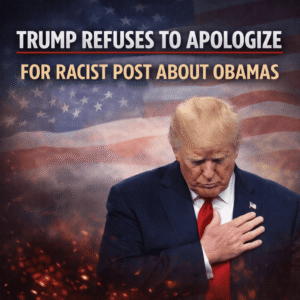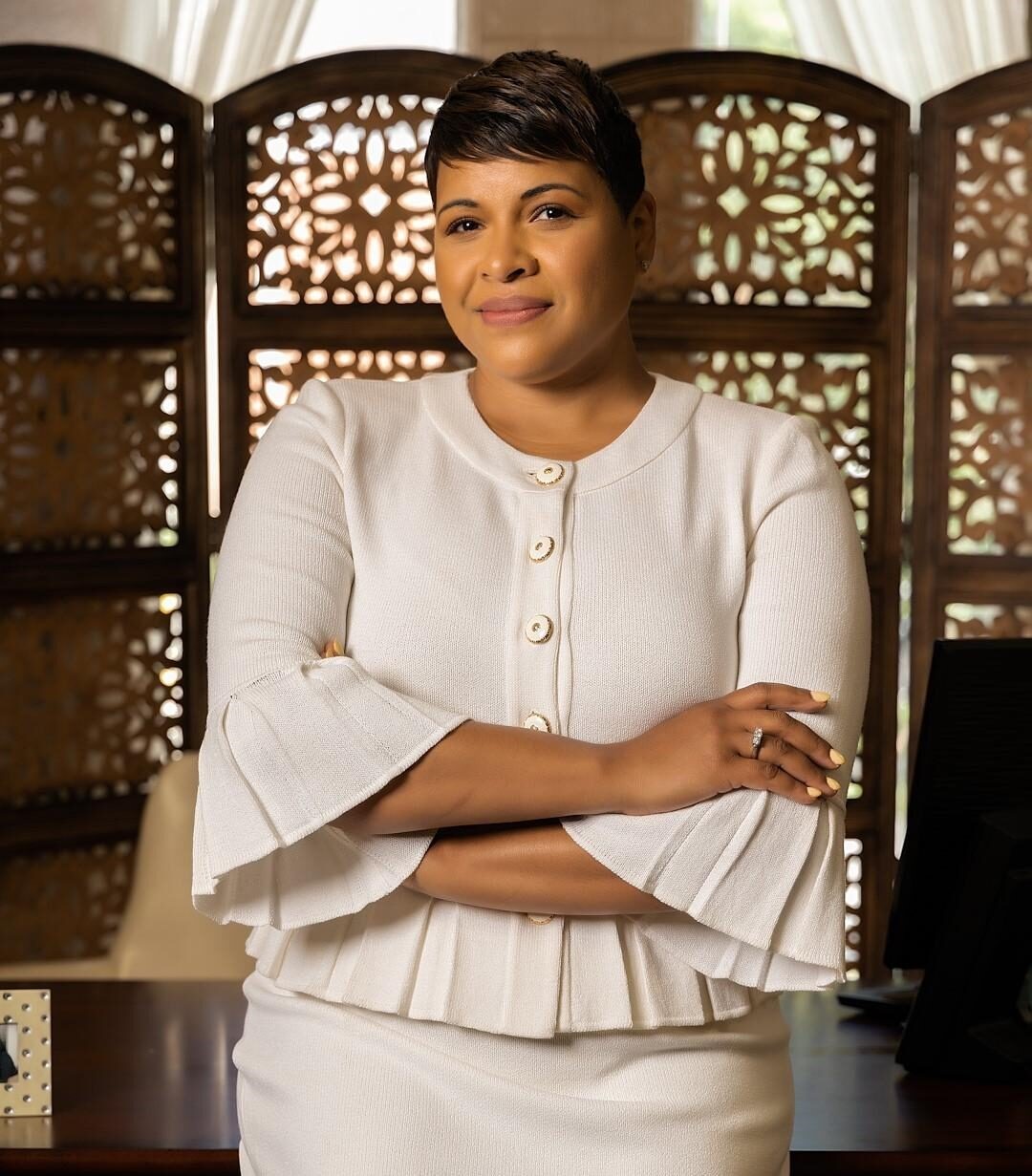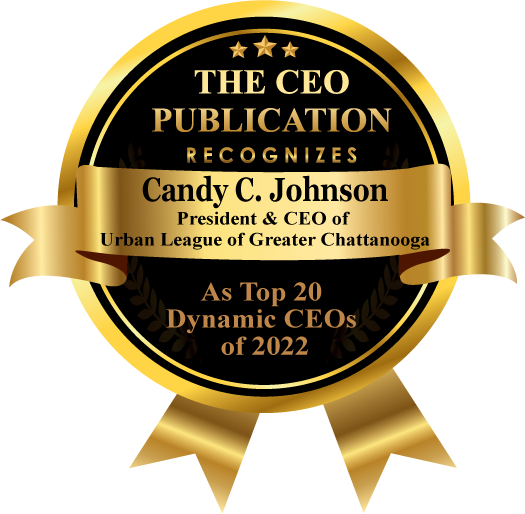

President & CEO
Before taking on the helm of the Urban League of Greater Chattanooga as its first female President and CEO, Candy Johnson served in a variety of leadership roles. Ranging from being the youngest-ever elected City Council member in her hometown at the age of 25 years old, to running a successful non-profit education foundation, serving as policy director at a Chamber of Commerce, to senior advisor to the Mayor of Chattanooga, and as an independent consultant for non-profits and business organizations. She has remained consistent and masterful at integrating past knowledge and experiences to solve present problems. She is what some in academia would consider a “boundary spanner,” civic ‘entrepreneurs of power’ who understand coupling, interdependencies and strategically utilizing networking skills and judgments with an emphasis on the importance of cultivating interpersonal relationships, communication, political skills, and an appreciation of the interdependencies around the structure of problems and their potential solutions. Other research around the notion of boundary spanners would suggest someone with Candy’s attributes as ‘catalysts who bring together problems and solutions that otherwise would bubble chaotically in the conventional currents of modern policy streams’ (deLeon 1996, p. 508).
Her intuitive and entrepreneurial thinking has shaped her leadership style where traditional organizational norms only serve as a springboard for new opportunities to improve organizational outcomes – and where a “people first” approach is the driver of necessary change. Her quest to understand systems vs. problems in isolation has shaped her decision making methodology to find effective solutions for change. She is a “civic entrepreneur” who sees the improvement in the quality of life for disadvantaged persons as the unrealized potential for communities to thrive.
Overcoming Obstacles
According to Candy, women of color face compounded issues of both race and gender bias throughout their careers– and historically, there have been fewer women and, more specifically, women of color in key leadership roles within organizations adding to the challenges that Candy experienced on her career journey, lack of representation and support systems to accelerate the advancement of women of color in leadership. While Candy has been in leadership roles since her college days at Austin Peay State University, progression did not come without challenge. Recent research highlights the difficulties compounded for women in the workplace (McKinsey) and those of Black women in the workplace.
McKinsey research (Women in the Workplace 2021) suggests that Black women are far more likely than other employees to be coping with the impact of racism and racial trauma. Some of their findings highlight that not only do women of color still face higher rates of microaggressions, they also still lack active allies. Women who are “Onlys”—often one of the only people of their race or gender in the room at work—have especially difficult day-to-day experiences. Their successes and failures are often put under a microscope, and they are more likely to encounter comments and behavior that leave them feeling othered, excluded, and reduced to negative stereotypes.”
“Throughout a large part of my career I’ve experienced bias on three fronts; racial, gender and age bias, often being the youngest leader in the room. Fortunately, along the way there have been a couple of male allies and mentors in my corner in the absence of women in position who helped to elevate me professionally and within community leadership roles,” she explains. “Having this type of social capital and ultimate sponsorship from my male mentor was a large part of my career success. The current position that I’m blessed to serve in now came about through a relationship that I had from when I was working as an independent consultant and a female community leader in whom I had led a project for, an ally, championed my work as a thought leader, problem solver and the overall skill set I possessed was shared with my predecessor. This led to my working with the Urban League initially as a consultant.”
Facing the challenges of racial and gender bias has made Candy more sensitive to the fact that all women, especially women of color, need opportunities to learn, grow, serve and the influence of power brokers and leaders of all backgrounds to help build relationships (social capital) in order to thrive.
Becoming A Mentor
The Urban League as an organization has been a leader in entrepreneurship development for women and people of color in a variety of ways, beyond providing a platform and a space for women to excel, but also through programs like their executive leadership development program, Inclusion by Design which prepares women and people of color with the knowledge and skills to excel in an executive assignment. In addition, out and from an entrepreneurial standpoint, our Next Level Business Accelerator has also focused on developing women and people of color to achieve business success.
“On a personal note, I have served as both a formal and informal mentor to women and ensure that they are strategically connected to the right people and environments that will help them to thrive,” adds Candy. “I try to help women who lack confidence see that they are capable and provide the opportunity for them to learn and grow within a supportive environment.” When this happens, women often find their voice and courage to do even greater things. Helping women use their innate leadership abilities in the workplace and community should be cultivated more.
Candy is a servant leader who models excellence and expects team members to see themselves as leaders regardless of their position within the organization. She believes that everyone can lead from where they are and should. She encourages a culture of curiosity and collaboration — working cross-functionally to learn about other areas of the organization outside of one’s specific area of expertise to gain new perspectives about their overall work and how everyone’s contributions impact the overall organization’s mission.
As a “people first” thinker, she believes a good leader understands how everyone in an organization impacts its mission. Making sure people know their impact on that is important.
Building A Brand
The Urban League of Greater Chattanooga (ULGC) is an affiliate of the National Urban League, the nation’s oldest and largest community-based movement founded in 1910 devoted to empowering African Americans, other ethnic minorities, and disadvantaged persons to secure economic self-reliance, parity, power, and civil rights to live a better quality of life.
Within her first year as president and CEO, Candy led the charge to produce its inaugural State of Black Chattanooga report which focused on the conditions of the Black population in Chattanooga and Hamilton County. Candy explained, “Moving forward we will work with leaders to use this as a starting point for addressing challenges and for thinking about the potential that accompanies a transformation in the lives of Black Chattanoogans — with a view toward a city with parity, equity, and shared opportunity, where ‘moving the needle’ is achievable.”
Realizing that the disparities between African-Americans and other ethnicities in Chattanooga continue to grow apart—especially on the forefronts of education, economics, and health—the Urban League of Greater Chattanooga launched three new empowerment centers in 2021 to streamline programming and services for an integrated services delivery model to help families move from merely surviving to thriving. The Center for Education, Workforce, and Family Empowerment, Center for Economic and African American Business Success, and the Center for Equity and Inclusive Leadership are all designed to meet the emerging needs of people of color and disadvantaged persons to foster greater economic prosperity and power.
“We are a non-profit organization that operates like a business — where the profit goes back into the people that our mission was created to serve — and ultimately because of our work we are contributing to a more equitable and inclusive future for our city,” elucidates Candy. “We will continue to grow as a leader in economic development and work on breaking down the barriers of systemic and institutional racism to build bright economic futures for those we serve. We will scale our efforts and build stronger partnerships, inviting others to the table that we are building—not for the institution, but for the people. We will be drivers of change for equity!”

" While leadership development is important, sometimes women just need a boost of confidence and to be given the opportunity to lead. My goal in working with other women is to show them that they are capable of leading from where they are, help them build relationships -- and provide the opportunity for them to learn and grow within a supportive environment. "




© THE CEO PUBLICATION 2021 | All rights reserved. Terms and condition | Privacy and Policy